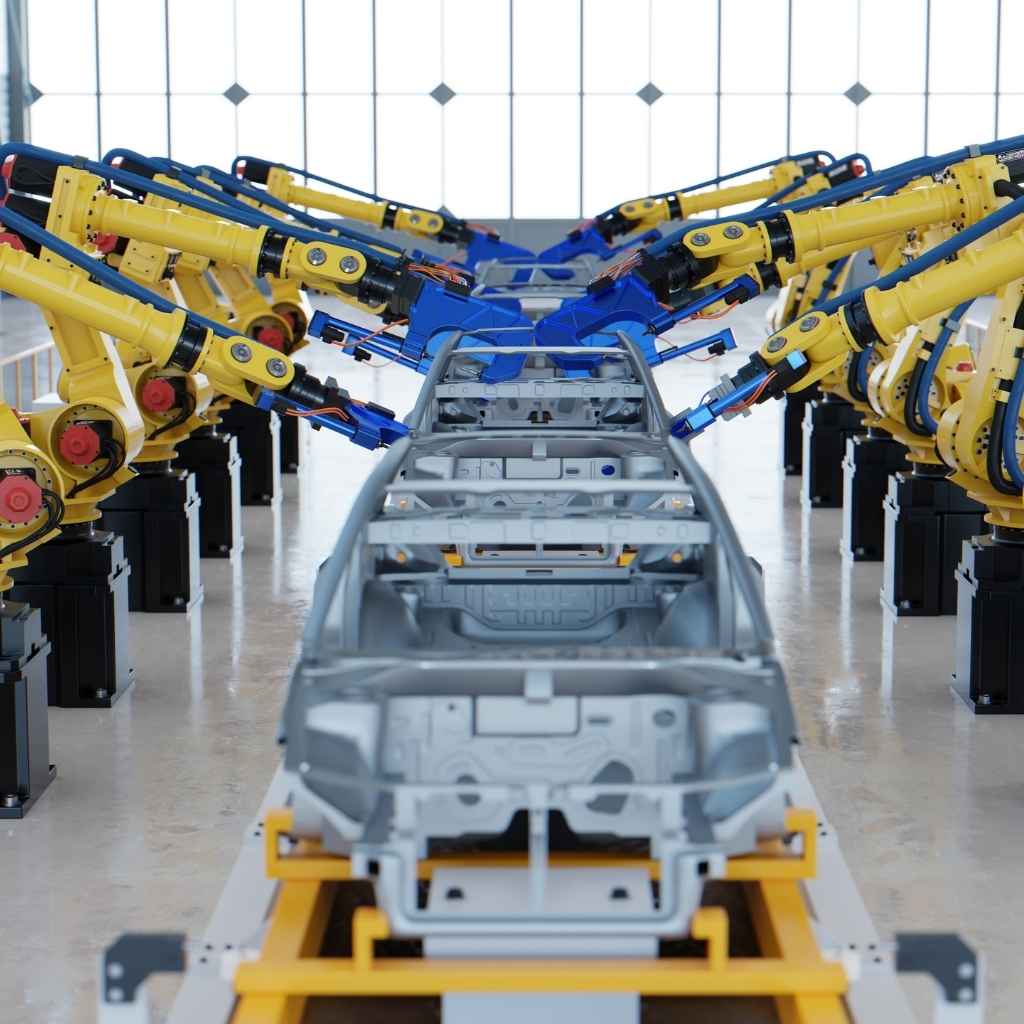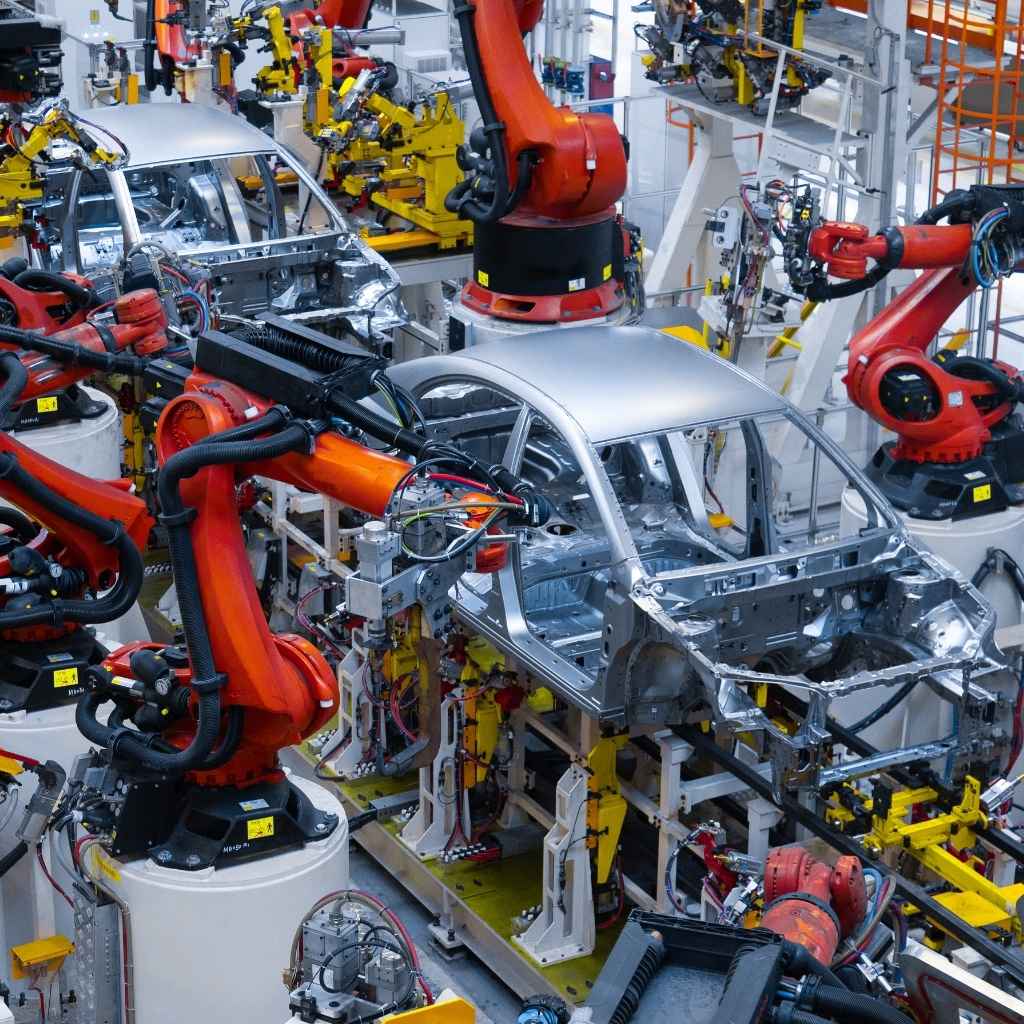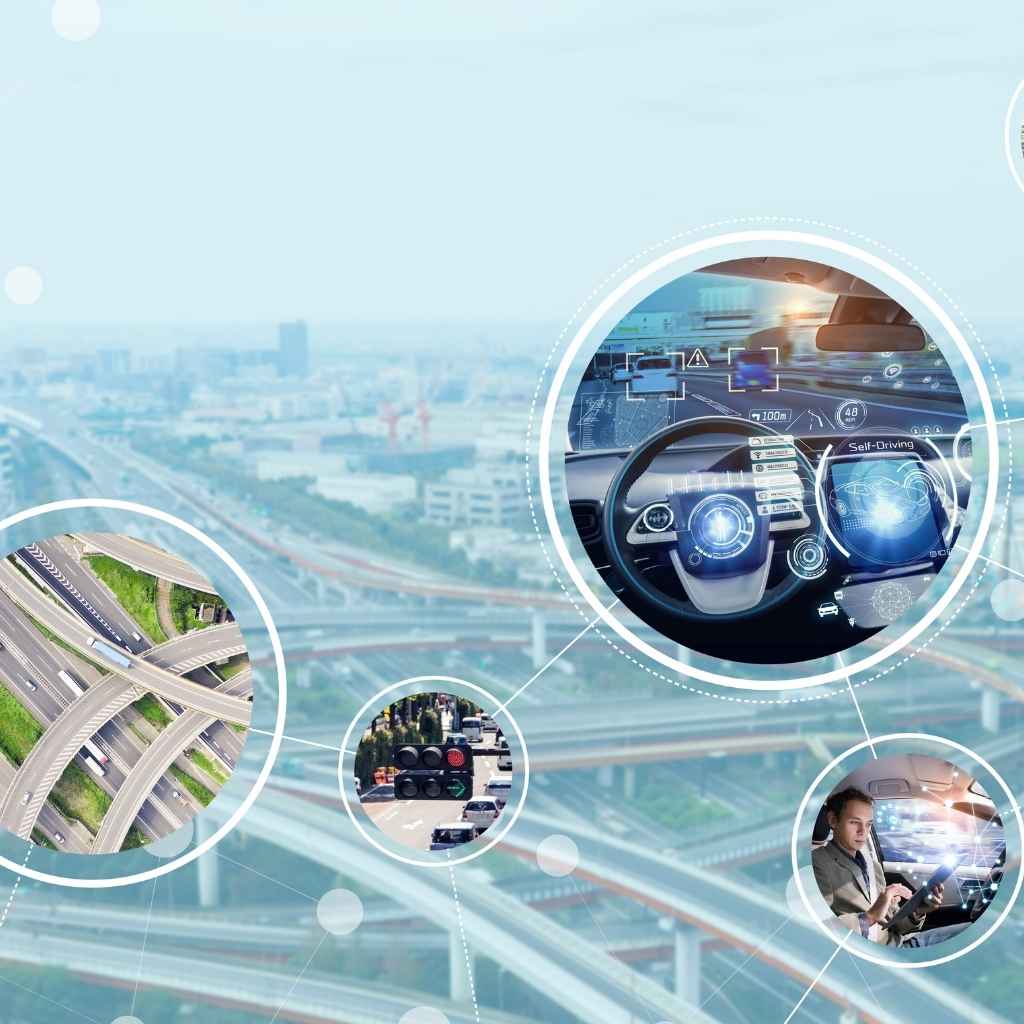Best ERP for Automotive Industry in India
Gain complete visibility across business operations, automate quality control & compliance, and elevate growth with ERP for automotive industry.
Gain complete visibility across business operations, automate quality control & compliance, and elevate growth with ERP for automotive industry.
Automotive ERP (Enterprise Resource Planning) software is an industry-focused solution that empowers automotive businesses with precise inventory tracking & management, production planning & scheduling, swift order management, and enhanced customer service. It plays an important role in helping automotive businesses adapt to quickly evolving market trends and demand surges.
ERP software deals with every aspect of the sector right from design integration to full-fledged production service, sales through supply chain management of the automotive industry, etc. The business management software’s versatile functionality benefits automotive companies’ various business processes including manufacturing, inventory, finances, HR, and more under a single roof.
India’s automotive industry is a cornerstone of India’s economic growth engine. Recently, India has emerged as a leader in the automotive value chain. It has seen exponential growth in the manufacturing of vehicles and auto components. According to a report by the Business Standard, the automotive sector contributes 7.1% of India’s GDP and 49% to the manufacturing GDP.
Several factors such as rising disposable income, a significant young population, and the Government initatives such as Automotive Mission Plan 2026, are contributing to the growth of India’s automotive sector.





Effectively manage all aspects of your automotive business from production and sales to supply chain with multi-functional Automotive ERP Software. Optimize your production processes, drive down costs, monitor machine performance, and improve supply chain agility.
Sage X3 is a highly scalable, flexible, and customizable solution that provides industry-specific applications to help you lead your automotive company. It empowers your business with top-notch modules to build high-quality products, deliver orders on time, stay compliant, and drive profitability.
Today automotive businesses lack updated tools and hence outdated systems incorporated at the workplace are unable to track real-time information. Hence the stored data is not precise which is further required for accurate forecasting.
The changing economic conditions have brought a drastic change in the supply chain domain and have disrupted it. The automotive supply chain has been facing several issues other than disruption and poor organization factors. Hence, they are under peer pressure due to the saturation in semiconductor manufacturing.
The automotive industry is rapidly changing and the companies face tough competition from both domestic and international players. As such, producing timely and accurate Cost Quotations is a major challenge for companies. Delays in their generation can lead to lost revenue opportunities.
The drastic change in the economy and inflation of essential items have brought a considerable change in the buying patterns of customers. Shortage of finances and uncertainty about vehicles in the coming times have affected vehicle purchases. It is one of the key challenges for the automotive industry.
Sage X3 is the Blueprint for Your Business's Success
Empower your team and elevate your results with ERP Software
Managing an automotive business has never been easier, thanks to Sage X3. Stay ahead of the curve with the robust planning, forecasting, and analytical capabilities. Maximize your production capacity, reduce delays, promote smooth workflows, and ensure quality & compliance at every level. Stay on track, adapt to changing market dynamics, and gain end-to-end control of your business operations.
⇒ Here’s why leading automotive companies across India choose Sage X3:
An automotive ERP software integrated with inventory management software assists businesses in dealing with seasonal demand fluctuations and keeping a realistic inventory threshold. ERP’s ability to thoroughly analyze historical data enables businesses to benefit from better and more accurate sales forecasting and manage realistic inventory thresholds.
With an integrated inventory module, your business is in a better position to deal with inventory shortages and dead stock. Besides, it automates the generation of the Purchase Order (PO) every time your stock level falls below a certain threshold.
Automotive businesses must maintain service requests for multiple vehicles that are entering the workshop. ERP for automotive manufacturing shortage ultimately affects the team’s work while also bringing up delays leading to unsatisfied customers. ERP system for automotive industry having service during feature helps automatically complete the process while keeping track of work orders.
This way, auto parts ERP helps order management get carried out easily. ERP software for automobile industry also helps in scheduling vehicle maintenance as well as repair work at the convenience of customers and checks whether the technicians are available or not. Auto part ERP finally keeps you away from the last-minute hassle while delivering flawless customer satisfaction.
Data analysis is a crucial feature of ERP. Reporting and Data analytics tools of auto parts ERP can help to fetch crucial information to help you overcome issues regarding spare part shortages as well as sold vehicles. The ERP software for the automobile industry is completely armed with Business Intelligence Tools with which you can easily predict changes while adapting them on an early basis.
With automotive parts software, you can stock inventory with the perfect mixture of spare parts for vehicle types to maximize your business profits. Your business benefits from cross-departmental visibility, better productivity, and resolution of data integrity conflicts.
ERP simplifies the complex and time-consuming billing process. It automates the generation of billing invoices and rescues the employees from the complex tasks of performing mathematical calculations, and manually typing product details. By eliminating data entry, the company benefits from faster processing and higher customer satisfaction.
ERP’s agile billing system enables businesses to adapt to changing business needs in today’s highly competitive business environment and get rid of the rigid billing process. Tracking late payments, and providing automated payment reminders, become easier than ever using its comprehensive revenue management system.
ERP simplifies the complex and time-consuming billing process. It automates the generation of billing invoices and rescues the employees from the complex tasks of performing mathematical calculations, and manually typing product details. By eliminating data entry, the company benefits from faster processing and higher customer satisfaction.
ERP’s agile billing system enables businesses to adapt to changing business needs in today’s highly competitive business environment and get rid of the rigid billing process. Tracking late payments, and providing automated payment reminders, become easier than ever using its comprehensive revenue management system.
ERP optimizes various business operations such as the management of production, contracts, inventory, warehouse, and customers. Streamlining processes benefits the business in various ways. It automates long, tedious tasks, and eliminates redundancy.
For example, it automates various processes such as the delivery of customer invoices after confirming their payment, the generation of the Purchase Order with the Procurement Management System every the inventory stock falls below the threshold level, and the integration of Barcode Scanners with the warehouse inventory.
Traditionally, businesses relied on multiple traditional legacy systems that streamlined specific business operations. The use of multiple legacy tools for different activities and departmental needs led to the fragmentation of data across different departments, rather than in one central space.
ERP uses a combination of modules in a unified single interface that ensures you have real time data access at all times, regardless of your physical location or department. The cross-departmental access to information results in informed decision-making and higher productivity.
Quality Control involves the standardization of various processes during the production activity. The goal is to ensure consistency in the quality, lower wastage, and adherence to the international quality standards. This helps reduce defects and bring down the refund or replacement costs.
In the modern business landscape, maintaining product quality and adhering to a defined set of quality standards is critical for businesses of varied industries. Without Product Life Cycle Management in ERP, businesses may not be able to compete with the competitors and deliver high-quality products and higher customer excellence.
Risk Management is a process that involves planning, defining, and prioritizing risks, and building a comprehensive plan to mitigate them. The process provides greater visibility into business operations and enables businesses to fight cost overruns, delays, and disruptions in business activities.
Modern automotive manufacturers use risk management strategies to stay aware of the potential risks and make collective efforts to address the full spectrum of the risks holistically and reduce their potential impact. Ultimately, it benefits the business with reduced costs & penalties and improved brand image.
ERP empowers companies with powerful inventory planning, forecasting, and management tools that help reduce over-stocking, and under-stocking. Reduced instances of overstocking minimized liquidity issues and optimized inventory storage costs. In contrast, reduced under-stocking improves customer satisfaction and brand reputation.
Businesses also gain access to real-time inventory tracking and monitoring. With clear oversight of risk, they are in a better position to reduce compliance breaches, and more efficiently comply with internal and external risk factors.
ERP provides an integrated Financial Management module that replaces a standalone accounting software. With financial regulations becoming stringent in recent years, it helps bring clarity and accuracy, reduce manual errors, and automate the generation of financial records.
Generation of General Ledger, Accounts Payable Automation, Fixed Asset Management, and Tax Management becomes easier with an ERP. Decision-makers can get important information about the company’s financial health and position in personalized reports and dashboards.
With ERP, companies can leverage robust data security and protection measures that ensure the integrity, privacy, and security of their data, backed by powerful data encryption. For example, they can define user roles and determine who can access sensitive data and who can’t.
Besides, ERPs provide round-the-clock monitoring to continuously protect your sensitive data. This is especially true for Cloud ERP where the data is stored on the vendor’s server, rather than on-premise infrastructure.
ERP provides precise forecasting that is based on the latest and most accurate information. Predicting potential sales revenues and growth in the customer base using a Sales Management System helps businesses become agile, and responsive and take advantage of the highly competitive market.
The forecasting features play a critical part in the organization’s success. They allow them to discover new opportunities, make strongly backed decisions, and capture new markets.
ERP keeps a database of each vendor with past procurement information, contact details, payment terms, credit terms, and preferred delivery mode, among others. It tracks the performance of each vendor and builds a risk profile based on their nature.
ERP helps build better relations with vendors with the seamless flow of information, lower lead times, and higher efficiency in the supply chain.
ERP brings end-to-end traceability using Lot and Serial Number tracking for product safety, recall management, and source of defect identification. This helps track defective products throughout their supply chain, and quickly identify defective lots.
With a higher level of traceability, businesses can benefit from improved product safety & quality, modern technology, and reduced product recalls & recall costs. They can strictly adhere to regulations and industry standards.
ERP for automotive industry is a highly specialized software that streamlines every aspect of the automotive business, from manufacturing, inventory management, and supply chain to financial management. It provides a comprehensive set of modules needed for timely order fulfillment, project management, and regulatory compliance.
Here are some of the instances of how automotive ERP application benefits the automotive industry:
Adapt to the latest market trends and changing customer requirements
It brings efficiency to the supply chain process
Track sales and marketing activities, and measure sales effectiveness
Minimizes manufacturing costs and increases profit margins
Provides strategic information, and comprehensive reports at every juncture to enable timely and accurate decision-making
ERP has become one of the most significant investments in the modern automotive industry. ERP implementation has helped the industry leverage cutting-edge technology and solutions for the advantage of their business. Auto part ERP streamlines routine processes, lowers manufacturing costs, maintains consistency in production quality, leverages better and more accurate sales and revenue forecasting using data analytics, and overcomes various business challenges. However, the business must consider the ERP cost while selecting an ERP.
Transform the production process with lower costs and higher production capacity
Better inventory management & planning with powerful demand forecasting tools
Don’t hamper your business with Out-of-Stock and Excessive Stock situations
Use sophisticated Quality Control and Assessment features and don’t let product quality issues negatively affect the brand reputation
Get a comprehensive analysis of sales reports, income reports, and various financial reports
Comply with local and international regulatory requirements such as product safety & quality standards, and pollution norms.
Boost work order management, improve client satisfaction, and leverage What-if scenarios
Maintain audibility and transparency throughout the accounting and financial recording
Leverage the Cloud technology to facilitate real-time exchange of information and innovative ideas
Make your business agile and competitive with strongly data-backed decisions rather than gut feelings
Here are some prominent features of the Automotive Software:
Sage X3 is the most used software in the automotive industry. It is a highly flexible and customizable solution that provides enterprise-level visibility, industry-specific capabilities, and a modern interface to transform your business operations.
Here are several ways an ERP benefits a car manufacturer:
Schedule Product Tour
"*" indicates required fields
Fill in the details below and we would be glad to help you.